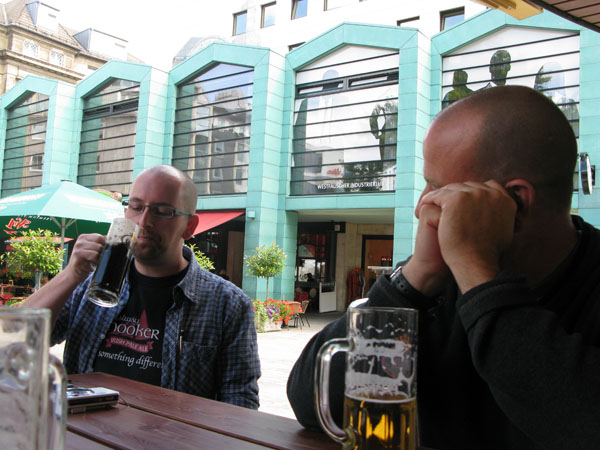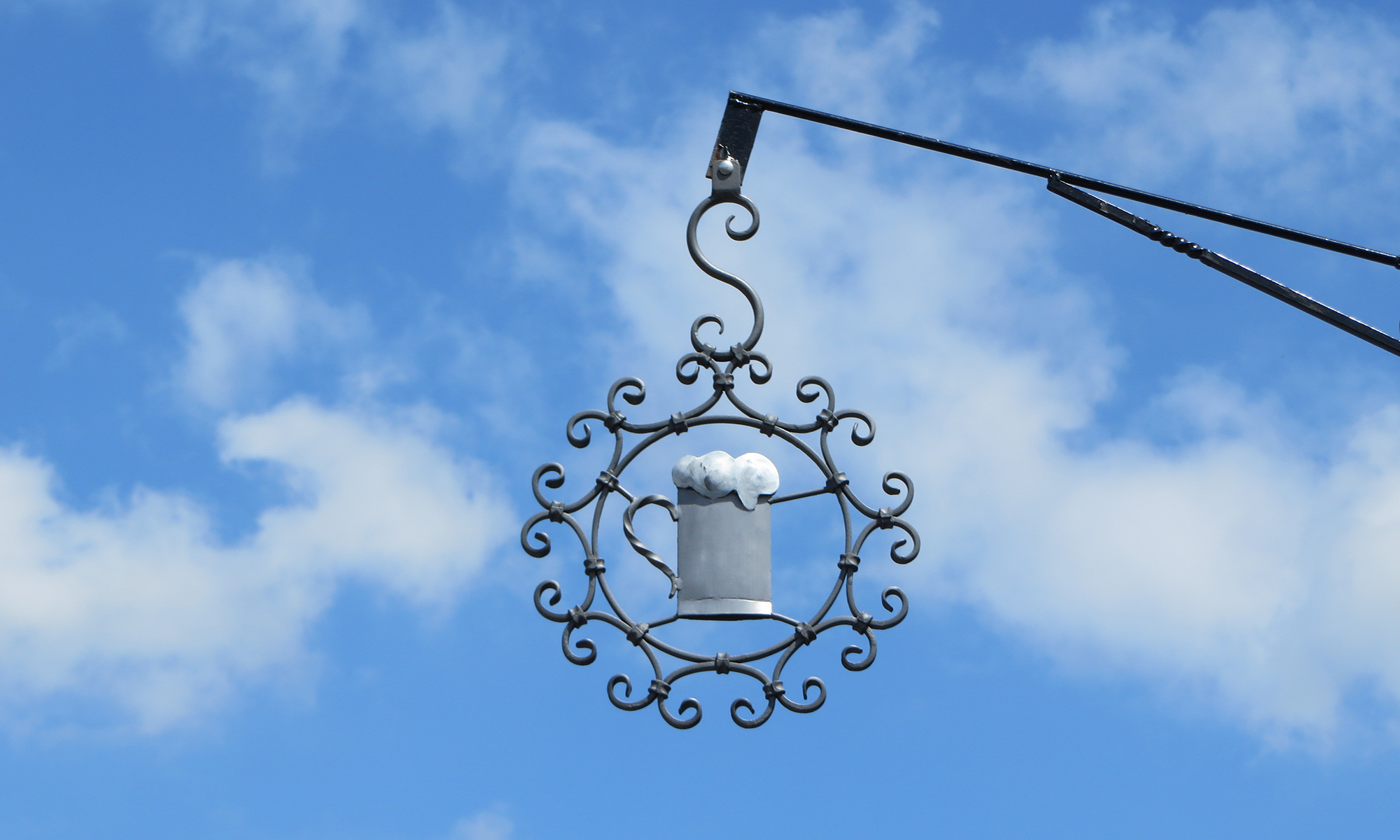Curiosity brought us to Dortmund, the first stop on our “Cities with a Beer Style” tour. Dortmund is the home of Dortmunder Export, a style that is disappearing. Dortmund was once a steel and coal town and Export was the beer of the workers. In the 1970s-80s, these industries died and the jobs along with them. As a result, Export suffered as well.

As the industries died, the Dortmund breweries went through a series of mergers. The medium-sized breweries bought smaller breweries only to be gobbled up by those bigger than them later on. In the end, there were just two breweries left, Dortmund Union Brauerei (DUB) and Dortmunder Actien Brauerei (DAB). Today, Export is a small fraction of their production.
We were curious to visit Dortmund and see what was left of their beer culture.
An early morning flight from Munich got us to Dortmund quickly. We made our way into the city center and dropped our bags at our hotel. We scheduled to meet Barry Masterson, one of the co-founders of Irish Craft Brewers. Barry, a native Dubliner, now lives in nearby Münster. Having returned from a business trip to San Diego the day before, Barry braved jetlag to meet us at Wenkers Brauhaus.

At Wenkers, we tried Export for the first time, as well as the two house beers, an Urtrüb (an unfiltered lager) and Schwarzbier. Wenkers, a brewpub until about 10 years ago when they sold their brewing equipment, has their beers brewed at nearby Hövels Hausbrauerei.
Hearing us speak English, Wenkers’ manager, Jörg, started chatting with us and gave us more information about Dortmunder Export beer. Jörg turned out to be quite knowledgeable about Dortmund beer history and the current attempts to resurrect the style. We also learned about Stösschen, a small glass of beer the miners and steel workers would drink for breakfast.

With a few beers under our belts it was time to see a new brewery on the Dortmund scene. Barry had been nice enough to arrange for a visit to Dortmund Bergmann Brauerei, a brewery working to resurrect the Export beer style. In the 1970’s, a larger brewery purchased Bergmann, then promptly shut it down. The current owner, Thomas Raphael, purchased the name a few years ago. The recipes were lost, so he tapped the brains of all the former brewery workers he could find in order to recreate the beer.
The brewery we visited is new and Bergmann has not yet started brewing at the location. So unfortunately, it didn’t count on the List. Thanks to Barry for setting up the visit and Jonas and Mark for giving us the tour and whisking us around town.

Together with Barry, we walked over to Hövels Hausbrauerei, the one brewpub in town. The main beer at Hövel’s is not Export, but rather a beer called ‘Original’. An amber colored beer with a sweet taste, Original is nothing like Export.
Jörg suggested we ask for the brewer Martin, but when we arrived, Martin was no longer around. We settled in for some lunch and beer. Jörg, taking care of business at the brewery, came up to our table and offered us a tour. We graciously accepted and descended into the cellar brewery. We were happy that this one did count on the List.

The three of us enjoyed Wenkers, so we decided to return there. Together we discussed the merits of the Export beer style. In the end, we decided that Export is not a bad beer, the style simply lacks distinction.
Ever helpful Jörg introduced us to Gerhard, a freelance tour guide who leads walking tours of Dortmund’s beer scene. Gerhard explained that Export costs about 12% more to produce than Pilsner. With little taste difference between the two, most breweries opt to brew Pilsner. The three of us would have liked to ask him more questions about the decline and current resurrection of the Export style, but he was actually leading a tour and could only take a few minutes with us.

Eleven hours after first meeting Barry, we called it a night. He traveled home on the train and we went back to our hotel. Hopefully, we’ll be able to share a few pints with Barry again in the future.
It was an interesting experience. Not knowing what to expect from Dortmund, I guess I didn’t expect to meet passionate beer people. How wrong I was. Despite the demise of Export, the people we met really cared about their Dortmunder beer history and culture. They were definitely passionate people who would like Export to be popular once again.
